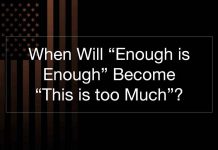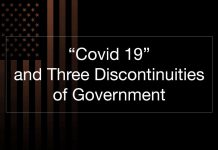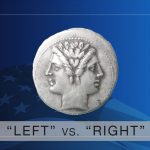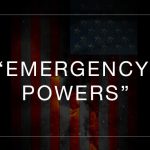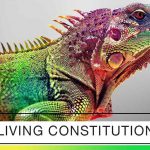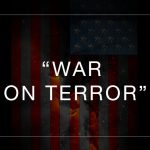Last Updated on October 3, 2021 by Constitutional Militia
During the course of the “covid-19” panic, masses of hot air, typescript, and electrons have been expended on what workers are, or are not, “essential”. On the one hand, in society’s estimation each and every worker in the free-market economy is “essential” in his particular job—otherwise, he would not be employed. On the other hand, from each individual’s perspective, his own employment is “essential” in order to meet his needs as well as the needs of others who depend upon him. Apparently, all too many elected public officials, bureaucrats, and judges imagine that, not only are they “essential” workers, but also they are licensed to determine which individuals in the private economy are “essential” workers whom they will allow to continue to work during the panic, and which individuals are “non-essential” workers whom they will prohibit from working through threats and even the imposition of fines and imprisonment. But average Americans entertain rather negative opinions as to whether many (if not most) politicians, public officials, bureaucrats, and judges are themselves “essential” workers (or even actual workers, as opposed to parasites). Beyond dispute, though, is that any individual who is not performing his job is, to the extent of his dereliction of duty, a “non-essential” worker (because, of course, to that extent he is not working at all).
What about the President of the United States? The key inquiry is: “What is his job?” Article II, Section 1, Clause 1 of the Constitution provides that “[t]he executive Power shall be vested in a President of the United States of America.” Thus, the President’s overall job is to employ “[t]he executive Power” for constitutional purposes—for, perforce of Article II, Section 1, Clause 7 of the Constitution, the President “‘solemnly swear[s] (or affirm[s]) that [he] will faithfully execute the Office of President of the United States, and will to the best of [his] Ability, preserve, protect and defend the Constitution of the United States.” Of most consequence, Article II, Section 3 of the Constitution prescribes that “he [that is, the President] shall take Care that the Laws be faithfully executed”. If the President does not “take Care that the Laws be faithfully executed”, to that extent he is not exercising “[t]he executive Power” and is not “preserv[ing], protect[ing] and defend[ing] the Constitution”. Thus, the President is an “essential” worker insofar as he performs his duty to “take Care”, and a “non-essential” worker insofar as he does not.
The “covid-19” panic presents numerous instances which raise the question of whether, to one degree or another, the President is proving himself to be an “essential”, or a “non-essential”, worker.
For purposes of a simple, yet highly important, illustration of the problem, consider the following set of questions, as to which the present author will remain noncommittal—leaving each reader to do his own research and supply his own answers:
-
- Is there credible evidence that, under the right circumstances, “covid-19” infections can be cured, and in a significant number of cases have been cured, through administration of a combination of hydroxychloroquine, azithromycin, and zinc sulphate (“HAZ”)?
- Is there credible evidence that certain officials in certain States have actually prohibited duly accredited and licensed medical doctors from administering HAZ to patients infected with “covid-19”, even though: (i) those doctors in their professional opinions considered such treatment to be necessary; (ii) those patients gave their informed consent to such treatment; and (iii) those officials knew or should have known of the effectiveness of HAZ, or were willfully blind or recklessly indifferent as to its efficacy?
- Is there credible evidence that public-health officials at various levels of the federal system have coerced, threatened, intimidated, or otherwise pressured or improperly influenced doctors not to administer HAZ to their patients infected with “covid-19”, even though: (i) those doctors in their professional opinions considered such treatment to be necessary; (ii) those patients gave their informed consent to such treatment; and (iii) those officials knew or should have known of the effectiveness of HAZ, or were willfully blind or recklessly indifferent as to its efficacy?
- Is there credible evidence that, as a result of such prohibitions, coercion, threats, intimidation, or other pressure or improper influence directed against those doctors, (i) those doctors have been prevented or deterred from practicing their professions in what in their professional opinions they considered to be the best interests of their patients; (ii) some of those doctors’ patients infected with “covid-19” have suffered more severely than they would have if they had been treated with HAZ; and (iii) some of those doctors’ patients infected with“covid-19” have died because they were not treated with HAZ?
- Is there a sound legal argument that, under the foregoing circumstances, both the doctors and their patients have been deprived of constitutional and civil rights by persons in public office acting under color of law? And do these constitutional and civil rights include: (i) in the case of the doctors, the “liberty” to practice medicine according to their professional discretion in the best interests of their patients and without outside interference; (ii) in the case of all of the patients, the “liberty” to choose which medical treatments to accept or to reject (in the popular phrase “the right to control their own bodies” as their own “property”); (iii) in the case of some of the patients the right to “life” unburdened by needless suffering; and (iv) in the case of other patients the right to “life” itself?
- Do Sections 241 and 242 of Title 18 of the United States Code impose criminal sanctions on persons who, acting under color of law, deprive others of such constitutional or civil rights, whether intentionally or with willful blindness or reckless indifference towards those others’ interests?
- If credible evidence and a sound legal argument exist with respect to the matters set out in Questions 1 through 6, should the President, in fulfillment of his duty to “take Care that the Laws be faithfully executed”, direct the Department of Justice (including the FBI) to conduct an immediate and thorough investigation of those public officials who prohibited doctors from administering HAZ to their patients or who coerced, threatened, intimidated, or otherwise pressured or improperly influenced doctors not to administer HAZ to their patients? And if the President, in the exercise of prudence, ought not to rely on the Department of Justice to conduct such an investigation, should he appoint for that purpose a special commission composed of suitably qualified scientific and legal experts, forensic investigators, and knowledgeable laymen who are citizens of the United States and completely independent of (i) the governments of the United States, of every State, and of every foreign nation; (ii) the World Health Organization, the United Nations, and every other international organization; (iii) every domestic or foreign pharmaceutical company; and (iv) every other private corporation, and every foundation, charity, philanthropic institution, and other non-governmental organization which provides financial or other support for work in any manner related to the prevention of or treatments for “covid-19” or like infections, whether by means of drugs, vaccinations, or other modalities?
- If, notwithstanding credible evidence and a sound legal argument for the matters set out in Questions 1 through 6, and notwithstanding his constitutional duty to “take Care that the Laws be faithfully executed”, the President neglects, fails, or refuses either to direct the Department of Justice or to appoint a special commission to conduct such an investigation, should he be deemed to be, to that extent, a “non-essential” worker? Indeed, if the President knowingly fails to “take Care that [some of] the Laws be faithfully executed” when rogue public officials and bureaucrats force dissenting doctors to commit medical malpractice on their helpless patients, is it not arguable that he is entirely a “non-essential worker”? For his duty “to the best of [his] Ability, [to] preserve, protect and defend the Constitution” is comprehensive and indivisible. It cannot be fulfilled when it is performed only as to one part, while being evaded as to another part.
Of course, even with respect to “tak[ing] Care that the Laws be faithfully executed”, the President must rely to some degree on his advisors. In the final analysis, however, he and no one else is responsible for the choice of his advisors, and for adherence to their advice. As Harry Truman rightly observed with respect to the President’s desk in the Oval Office, “the buck stops here”, because from that place it cannot be passed to anyone else.
When he starred in show business, the President became famous for the line: “You’re fired!”
The old saying that “there’s no business like show business” is not true, though. Show business pales in comparison to the constitutional business of “tak[ing] Care that the Laws be faithfully executed”. If the President proves himself to be a “non-essential” worker with respect to this most essential of his constitutional duties during this most trying time, is “You’re fired!” not what voters might say to him this coming November?
© 2020 Edwin Vieira – All Rights Reserved





























